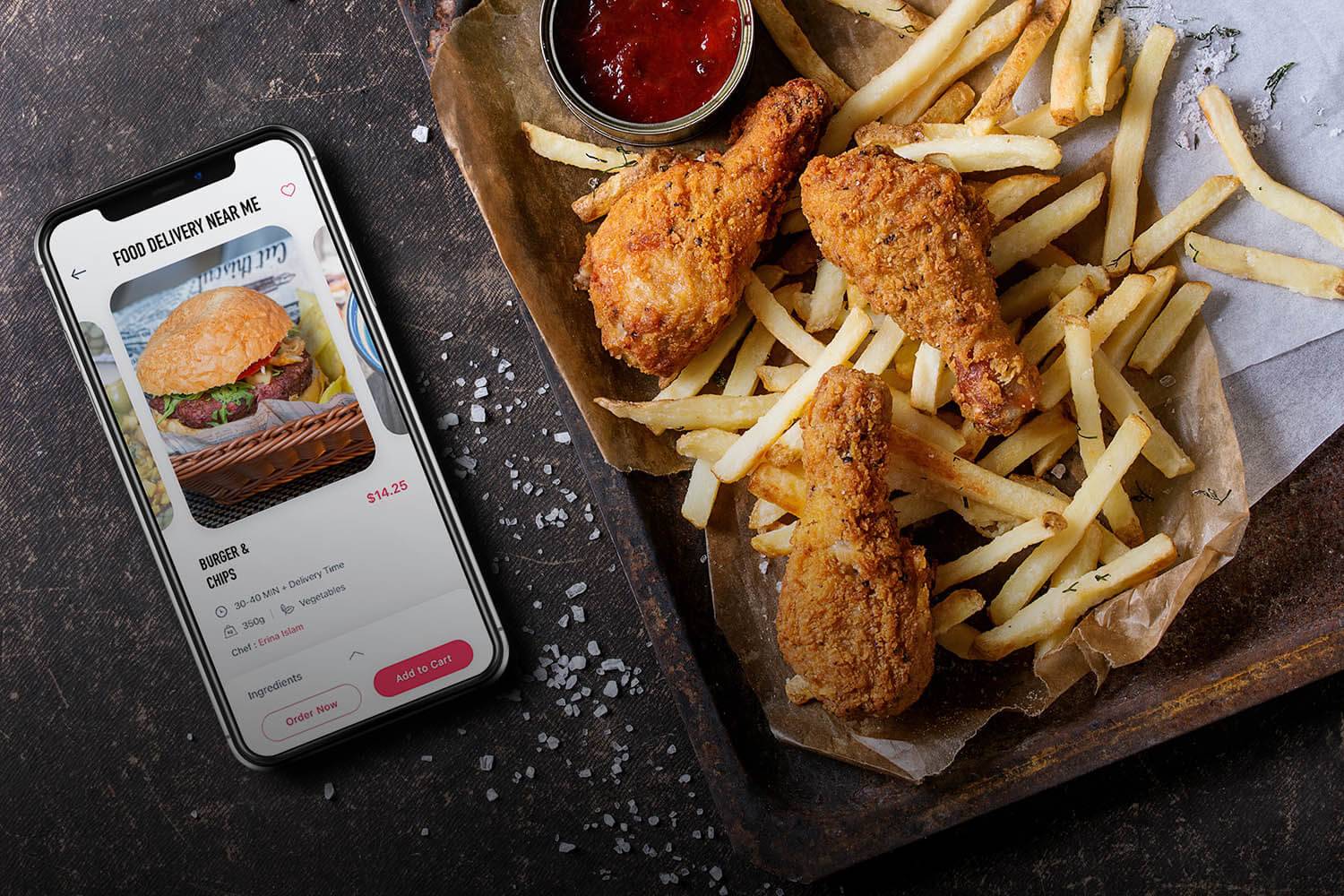Why The Famished Business Of Food Delivery In Africa Is Ripe For A Feast

The African chapter of the food delivery business, if anything, is starting to unfold.
The sector may be past nascent elsewhere, but the momentum it gathers in the continent is going past trend and becoming a proper venture. A series of spinoffs and launches prove that African ventures are vying to digitize the food delivery market share.
The Food Delivery Trend
For 2020, the business is already off to a flying start. UberEats decided to go local days ago in South Africa. The American company which has already pocketed most of Africa’s ride-hailing profits, aims to conquer the food delivery market in the continent. The gastronomic service is leveraging its massive fleet of drivers and tracking popular food choices destinations.
In December 2019, Ugandan bike-hailing firm SafeBoda, added food, delivery and payments to its digital platform. The move which came weeks after it debut in Nigeria, seems the radius that completes its circle of becoming a super app in Africa, just like its Asian counterpart Go-Jek.
However, food delivery is not a new business in Africa, some ventures were operational as of 2010. From OrderIn in South Africa to Otlob in Egypt, Food Court in Rwanda to Easy Appetite in Nigeria, the sector as been well alive for (say) a decade or two. It is only until recently that the industry sparked interest in the region, especially Sub-Saharan Africa.
Jumia Food is very positioned in the market, but thanks to the entry of what could be called a worthy contender, the race to become an African super app is building steam.
The trojan horse-like, rapidly-expanding venture known as OPay has a food delivery service under its belt, though just starting off as a ride-hailing service. The race may rivet more as Estonia-based ride-hailing firm Bolt plans to come in early 2020.
Vuba Tem
Some of the hottest topics that shook the African tech scene in 2019 had JUMIA as their keyword. The drama built steam in the late part of the year as the e-commerce company started abandoning some African markets to downsize its operations.
The Rwandan arm – alongside Jumia Travel – of its food delivery business met with the axe. But something else interesting happened, which shows that JUMIA’s layoff does not mean the food delivery sector has not yet kicked the bucket.

The staff who were affected by the layoff in Rwanda put two and two together to start a local food delivery company. Called Vuba Vuba Africa, the venture started operations on January 2, 2019, less than a month after the Jumia Food incidence.
From the looks of it, the Rwanda-based business has an edge in the market on the backs of their experience from the exiting company. Led by Albert Munyabugingo, former Jumia Food Managing Director, the team comprises staff who worked with JUMIA for no less than 5 years.
Vuba Vuba is also retaining 80 percent of the staff and riders, and disclosed to Rwanda’s The New Times that: “Experience has also taught them that no one marketing concept serves the market entirely and they have consequently built diverse models”.

After securing USD 4 Mn in Series A, Algeria’s transport and mobility company TemTem joined hands with Jumia Food to serve consumers in the North African country.
While TemTem brought its expertise in fleet and cash management, Jumia Food focused on onboarding the best food places and provide top user experience.
According to TemTem COO, Lies Mollard, the agreement will allow the business to generate thousands of jobs and become the leader in last-mile delivery.
More Touch Points
Chinese-influenced OPay, just like Uber, has a grand plan. On the mission to become the mobile application motherload of Nigeria – before anywhere else – it is introducing vertical services such as food delivery to create more touch points with users.
Along the line, the business is as well building on retention in the app by means of user engagement. The ubiquity of ORide translates into a more efficient model and competitive advantage for OFood.
In an interview with WeeTracker, Ridwan Olalere, Senior Director of Operations at OPay, said: “OPay also into the opportunity of how difficult it is in Nigeria to get a meal from a restaurant of choice from the comfort of homes and offices.
With OFood, we offer an easy and efficient online platform capable of handling hundreds of online orders and deliver them to your doorstep. This has been a game changer in the food delivery business”.
SafeBoda started out a motorcycle taxi service. Setting sights on food delivery rhymes with its mission to improve the welfare and livelihoods of Africans – mainly through empowerment.
The business began in November 2014 with just 20 drivers, but now works to provide people with financial services and other on-demand services to keep Africa digitally on pace. By providing mobile top-up and money transfer, the Allianz X and Go-Jek-backed firm is also creating business touch points.
Right Time
Internet penetration, mobile money adoption and smartphone use in Africa has shown impressive numbers. In Nigeria, for instance, there are more than 110 million internet users, and the number is expected to grow to 188 million in the next four years.
OPay’s Ridwan Olalere reckons that so many people being online nowadays shows that the food sector needs to step up. He adds that: “Current solutions also need to be improved to attend to the demand for online delivery services”.
In Uganda where SafeBoda hails from, June 2018 saw the internet penetration rate stand at 47.4 percent, with about 18.5 million subscribers. It is relatively considerate for a country of 43 million people.
But internet-based services are disturbed by the social media use tax which brought penetration to 35 percent (13.5 million users). But there is a light at the end of the tunnel, as the venture-backed business sees need to expand within and outside the country.
In South Africa, which is Africa’s most developed economy, UberEats has found love with its online food delivery industry which is currently worth USD 713 Mn.
According to data portal Statista, the growth of the sector will be at almost 14 percent year on year, eventually blowing past USD 1.2 Bn in 2023. Interestingly, UberEats is Uber’s fastest-growing business, contributing over 10 percent of its quarterly revenue of USD 3.8 Bn.
Tackling Last-Mile Delivery
The race for African eaters is one with a big prize. The food delivery market shows symptoms of supersizing. If the signs aren’t misleading, the sector will hit USD 100 Bn by 2025 from an estimate of USD 82 Bn globally in 2018.
Olalere, while confirming the lucrativeness of the venture, posits that the significant acceptance of food delivery in Africa will mean the region biting a huge chunk of the apple. But to get closer to the finish line, the ventures have to worry about last-mile delivery.
Thanks to poor road networks and the prevalence of unmapped areas, last-mile delivery does not entirely do these businesses any favors. OFood’s solution is to ensure each merchant has an in-house delivery system.
“The reason for this brews from the fact that merchants have knowledge of their environment and are best suited to know the fastest route to the delivery spot, since the app is designed to show users merchant closest to their location,” Olalere explains.
Supposedly common with all food delivery business models, the relationship between the company, the vendors and the users can be likened to a three-legged wheel. Each one is as important as the other.
For OFood, it links between the merchant and the users, providing tech and customer support. In many streets and main roads of Lagos, Nigeria, the business has on boarded vendors with hygienic physical restaurants. The merchants have an android phone to use the merchant app.
Image Courtesy: Spaces.ca